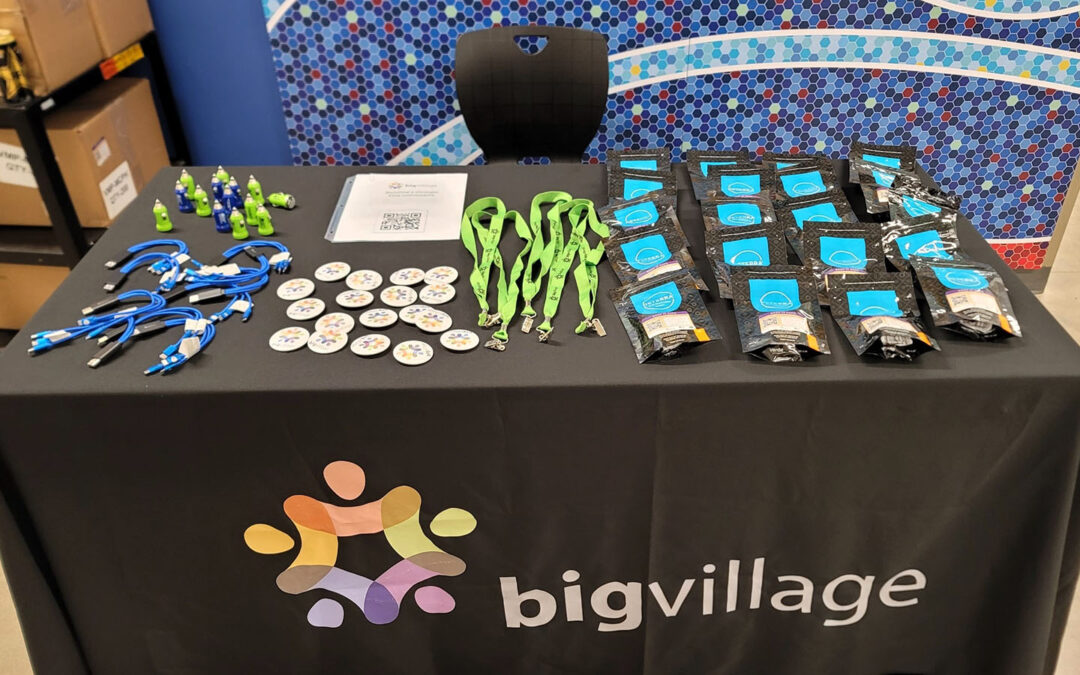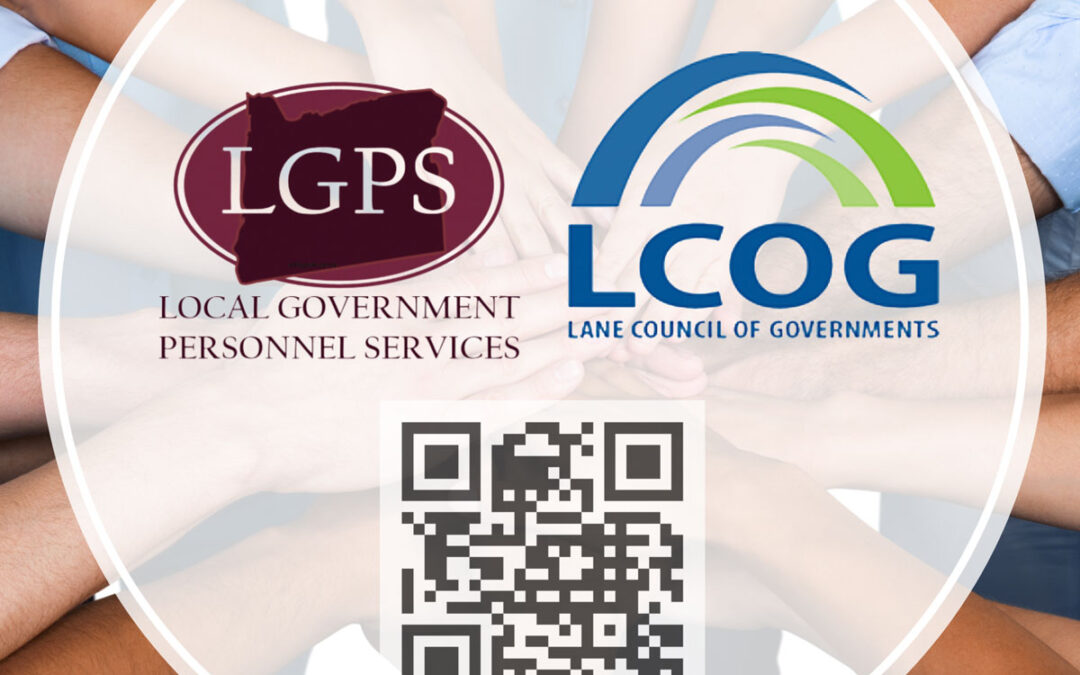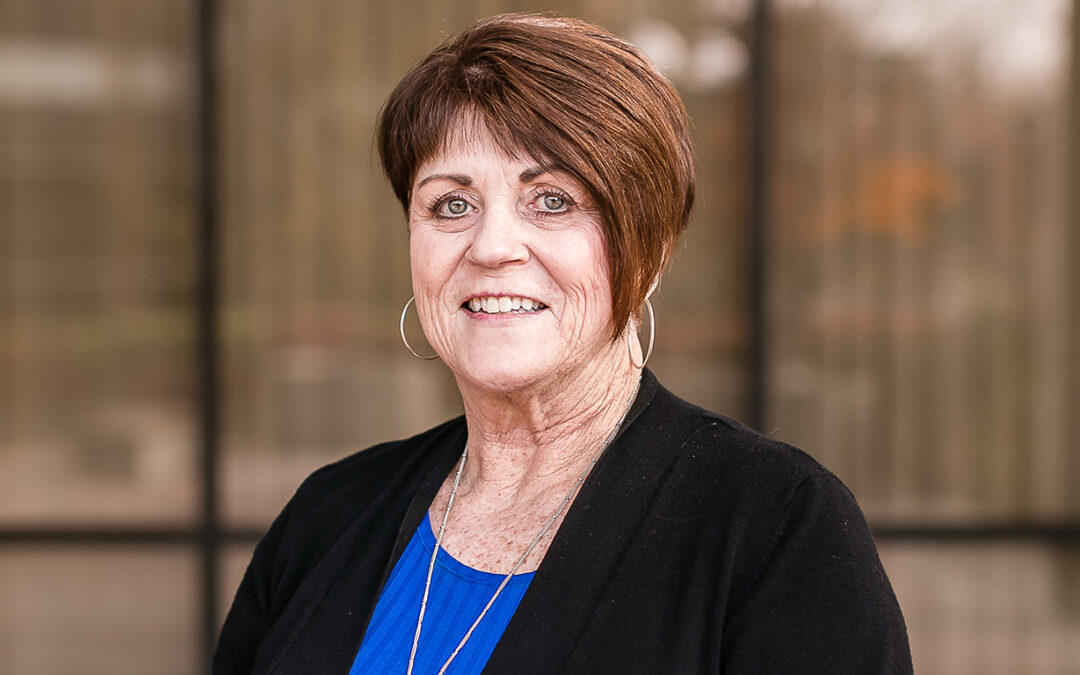Jan 26, 2024 | AOC Business Partner
Sponsored content contributed by AOC Business Partner: Regence
If your New Year’s resolutions include improving your health, here are 10 things you can do this year with a little help from Regence:
- Make sure you have a personal doctor or primary care provider. Having a personal doctor makes it easier to get care when you need it. It can take a while to get in for an initial appointment, so schedule it right away. If you need help finding an in-network doctor, try our find a doctor tool or call us at the number on your member ID card.
- Get an annual wellness visit, which is covered by most Regence plans with no out-of-pocket costs. Your doctor can assess your overall health and give you guidance on how to improve. This baseline can be very helpful as you plan health and fitness goals for the year.
- Take care of your mental health. Make self-care a priority. If you’re struggling and need help, most Regence plans cover a variety of mental health care services and resources, such as one-on-one counseling, group therapy, medication, as well as self-guided well-being tools and virtual care options. If you have questions about your mental health benefits or need help finding a provider, sign in to your account to chat online or call us at the number on your member ID card.
- Get all your recommended health screenings, such as screenings for breast, cervical and colorectal cancers. Most screenings are covered with no out-of-pocket costs if you meet criteria. Talk to your doctor about which screenings you should get this year and sign in to your account at regence.com to learn more about your coverage. It may take a few months to get in for some screenings, so get them scheduled early.
- Get vaccinated. Getting all your recommended vaccinations for diseases like flu, COVID-19, RSV and pneumonia will help you avoid illness so you can focus on improving your health. Most vaccinations are covered with no out-of-pocket costs if you meet criteria. Some vaccinations, like the flu shot, are covered annually. Talk to your doctor or pharmacist for help deciding which vaccinations you should get. Sign in to your account at regence.com to learn more about your vaccine coverage.
- Stop using tobacco. Most Regence health plans cover up to eight face-to-face tobacco use cessation counseling visits during a 12-month period to help you kick the habit. Learn more on regence.com.
- Participate in a wellness program. Many employer groups insured by Regence offer a wellness program that provides incentives like gift cards and cash for participation. Programs invite you complete a health assessment, then provide personalized programs and activities that can help you reach your self-identified goals. Check your account at regence.com to learn what’s available to you.
- Take advantage of any fitness and wellness benefits included in your health plan. Some plans include discounts on health-related products and services like fitness devices and gym memberships. You may also be able to use funds from your Health Savings Account or Flex Spending Account to help pay for some of these services. Check your account at regence.com to learn what fitness and wellness benefits are included in your plan.
- Familiarize yourself with all the care options covered by your health plan. Make sure you know when you should head to the emergency room instead of an urgent care or your doctor’s office, versus the virtual care and telehealth options available with your Regence plan. Knowing the difference could save you time and money, and it’s better to figure it out now instead of when you’re sick.
- Get help making healthier choices. For example, most Regence plans cover one-on-one nutrition counseling with a dietitian to help you improve your diet. The counseling can be especially helpful if you have certain medical conditions, such as diabetes or renal kidney disease. You can also get help managing your substance use, including alcohol, drugs and other substances. Many Regence plans include access to traditional and virtual substance use disorder treatment providers such as Boulder Care and Hazelden Betty Ford. To learn what’s available for you, sign in to your account to chat online or call us at the number on your member ID card.
Log in to your account at regence.com or call the number on the back of your insurance card to learn more about all what’s covered by your health plan.

Jan 25, 2024 | AOC Advocacy, AOC News, Transportation
The Association of Oregon Counties (AOC) and League of Oregon Cities (LOC) continued the Transportation Funding Forum meeting series in January (watch recording), featuring presentations from Governor Kotek’s transportation policy staff and transportation stakeholders in the construction industry, the environmental community, transit, and freight carriers. The discussion explored the range of interests and priorities in the future of Oregon’s shared transportation system.
The forum series will continue through 2024 to further coordination, collaboration, and shared understanding of local government interests in the future of Oregon’s transportation funding system and increase transparent, partnership-oriented communication with state agencies, stakeholders, and the legislature. Upcoming forums will take deep dives into national trends in the future of transportation funding, explore local revenue options, more specific needs related to safety, bridges, and the multimodal system.
The kickoff forum meeting in August (watch recording) provided a detailed overview of federal, state, and local funding mechanisms and how these revenue tools work together to fund the current system. The October meeting (watch recording) featured presentations from city and county road departments to demonstrate the range of local jurisdiction transportation budgets and varied regional project priorities.
Contributed by: Mallorie Roberts | AOC legislative affairs director

Jan 25, 2024 | AOC Advocacy, AOC News
The 82nd Oregon Legislative Assembly will convene on Monday, Feb. 5, for a 35-day session. Legislators will return to the Oregon State Capitol, still under major construction, with the historic wings remaining closed. Association of Oregon Counties (AOC) members are encouraged to join policy steering committee meetings on Feb. 2, and Feb. 5, to learn about and weigh in on legislative concepts impacting counties. Members can expect email communications from AOC’s legislative affairs department with timely updates and action alerts related to high priority bills.
The AOC legislative affairs department and membership will focus their advocacy during the 5-week session on the following top policy priorities identified by the AOC Legislative Committee.
Community Development
- Advocate for a fast-track process for limited urban growth boundary expansions that significantly increase affordable and workforce housing in all communities experiencing shortages of buildable land. (LC 19 – Governor Kotek’s housing bill)
Contact: Legislative Affairs Manager Branden Pursinger, Natural Resources and Land Use, bpursinger@oreogncounties.org
Governance and Revenue
- Address problems arising out of the U.S. Supreme Court’s decision in Tyler v. Hennepin County — limit county legal liability and create a standard process for how foreclosure surplus claims are handled. (HB 4056 – introduced by Representative Conrad)
Contact: Legislative Affairs Manager Michael Burdick, Governance and Revenue, mburdick@oregoncounties.org
Health and Human Services
- Establish a statutory process and schedule for a cost study of core behavioral health services (local services required in statute). (LC 115 – introduced by Representative Nosse)
- Mitigate liability risk shift to counties and local system providers for mandated populations (aid and assist, civil commitment, and guilty except for insanity).
Contact: Legislative Affairs Manager Jessica Pratt, Health and Human Services, jpratt@oregoncounties.org
Natural Resources
- Protect and enhance county authority, funding, and flexibility to support management policies and locally focused policy making processes across the Natural Resources portfolio.
Contact: Legislative Affairs Manager Branden Pursinger, Natural Resources and Land Use, bpursinger@oreogncounties.org
Public Safety
- Increase state investment in community corrections funding for the remainder of the 23-25 biennium.
- Elevate the county voice in Measure 110 reform, supporting policy modifications that prioritize engagement in substance abuse treatment, provide sufficient funding for county services, and strengthen tools the criminal justice system can use to fight illegal drug use and sales.
Contact: Legislative Affairs Manager Jen Lewis-Goff, Public Safety and Veterans, jlewisgoff@oregoncounties.org
Transportation
- Advocate for the statutory authority for counties to charge cost-recovery fees for permits issued to utilities for work in the county road right of way. (SB 1566 – Joint Committee on Transportation committee bill)
Contact: Legislative Affairs Director Mallorie Roberts, Transportation, mroberts@oregoncounties.org

Jan 25, 2024 | AOC Advocacy, AOC News, Governance, Revenue, & Economic Development
Among AOC’s priorities for 2024 is a bill to be known as HB 4056 that will create an orderly process to get refunds to property owners in cases where a foreclosure sale generates proceeds that exceed the property’s tax debt, penalties, and costs related to foreclosing. The bill solves logistical problems counties face in the wake of Tyler v. Hennepin County, a recent U.S. Supreme Court decision that invalidated Oregon law dictating how counties handle such cases.
Most Oregonians are unfamiliar with the foreclosure process, and it has been years since the legislature made major changes to laws governing the process. Getting a bill about such a complicated topic over the finish line in a short session will be a heavy lift. For HB 4056 to win passage, dozens of legislators will need to have a solid understanding of how foreclosure works in Oregon and counties’ responsibilities surrounding it.
AOC was happy to secure time at the joint meeting of the Interim House and Senate Judiciary Committees on Jan. 12, to boost lawmakers’ understanding of the foreclosure process. AOC arranged for county subject-matter experts to present to lawmakers about what state law requires counties to do when people fail to pay their property tax on time, who tends to get caught up in foreclosure proceedings and why, what sorts of property tends to be involved, and the many ways counties work toward positive outcomes under sometimes very difficult circumstances. Marion County Assistant Legal Counsel Scott Norris, Josephine County Assistant Legal Counsel Stephanie Nuttall, Lane County Assistant County Counsel Emily Vario, Lane County Property Manager Kellie Hancock, and Deschutes County Property Manager Kristie Bollinger presented at the meeting and answered questions from lawmakers.
Their presentation is available for download here, and a video of the meeting can be viewed here (the presentation begins at the 48 minute mark).
January “Legislative Days” (Jan. 10-12) was the last opportunity to communicate with lawmakers on-the-record before Oregon’s “short” legislative session begins on Feb. 5, setting off a mad dash to move legislation before the final gavel falls a few short weeks later (March 10, at the latest).
While many of the bills to be introduced are still under wraps, some are starting to trickle out. AOC legislative staff have been furiously preparing for the sprint ahead, working to pin down details of lawmakers’ plans, and doing our best to ensure AOC priority legislation is in the best possible position to find favor with lawmakers.
Contributed by: Michael Burdick | AOC legislative affairs manager

Jan 24, 2024 | AOC Business Partner
Sponsored content contributed by AOC Business Partner: Deterra
Drug overdose deaths increased 76% in Oregon from 2011-2021, according to the Oregon Health Authority. Recently, fentanyl and other synthetic opioids are driving an increase in fatal and non-fatal overdoses, with deaths from synthetic opioids increasing 83% from 2020-2021.
Counties in Oregon are working diligently to combat this crisis by providing drug deactivation and disposal tools to reduce the supply of unused prescription medications and illicit drugs that can contribute to misuse and overdoses.
In Clackamas County, District Attorney John Wentworth launched an initiative this summer to provide at-home drug deactivation and disposal pouches to encourage proper disposal of unwanted drugs.
The DA debuted the Deterra® Drug Deactivation and Disposal Pouches at the Clackamas County Fair in August. Wentworth plans to distribute the plant-based drug disposal pouches across the county as a simple way for everyone to help prevent drug misuse and overdoses.
The pouches safely deactivate and destroy prescription and over-the-counter medicine, opioids, fentanyl, illicit drugs and vape fluid.
Neighboring Multnomah County has also had success addressing youth substance use by increasing access to proper drug disposal resources. The county health department partners with Big Village Coalition on the “Keep It Safe” campaign to provide youth and families with prevention education and at-home drug deactivation pouches. Each pouch has a custom label adhered to it with a QR code linked to an informational website translated into six languages.
The efforts in Clackamas and Multnomah counties address fentanyl and prescription drug safety in a way that empowers community members to help prevent drug misuse and protect the environment from the impact of unused drugs. Several counties in other states have started mailing Deterra Pouches directly to households as part of community prevention campaigns.
Opioid settlement funds and grants support prevention and disposal efforts
Opioid settlement funds and grant dollars are available to help counties implement evidence-based prevention strategies.
As the result of a national lawsuit against pharmaceutical companies, Oregon is expected to be awarded around $325 million over 18 years. These funds can be used for evidence-based opioid prevention, treatment, and recovery strategies.
Participating local governments will receive 55% of these funds, and making an investment in prevention is essential to stop misuse before it starts. One of the most effective ways to quickly reduce the risk of drug misuse is a direct-to-household mailing of educational materials and drug deactivation pouches. A household mailing campaign is ideal for efficiently distributing prevention tools and reaching rural or underserved communities with limited access to other disposal methods.
To see the impact a prevention education and at-home disposal campaign can have on your county, request a free custom assessment.
Contributed by: Senior VP of Marketing Erica Webb

Jan 24, 2024 | AOC Business Partner
Sponsored content contributed by AOC Business Partner: Hampton Lumber
Northwest Oregon is home to some of the most productive and sustainably managed forests in the world. These forests have made Oregon the top U.S. producer of renewable building materials.
Local sawmills rely on a steady and sustainable supply of timber from surrounding public and private forests. Unfortunately, uncertainty over the trajectory of the 70-year Habitat Conservation Plan (HCP) for State Forests turned into alarm and disappointment for the industry and the Forest Trust Land Counties in 2023 when the Oregon Department of Forestry announced the proposed HCP will result in harvest levels as much as 34 percent lower than current levels. While the forest products sector is accustomed to short-term market disruptions, the long-term outlook for timber supply in the state remains a source of concern for local companies that must decide whether continued investment is tenable. Looking to the future, Oregon elected leaders and policy makers will need to prioritize, protect, and enable working forestlands in the state to not only support exiting wood manufacturing capacity but also create new opportunities for value-added mass timber manufacturing.
Sawmills are often the most visible component of a healthy forest sector, but Oregon’s working forests also support hundreds of family-owned logging and hauling companies that specialize in the safe and sustainable harvest and transport of wood products. Indeed, most local benefits that arise from timber harvests come not from the revenues associated with timber sales, but the work that active forest management generates year after year. We estimate that for every $1 million in revenue created by a timber sale, an additional $1.4 million is generated locally to harvest, transport, and create lumber. Additional revenue and employment are generated through lumber sales and secondary manufacturing facilities, including those that produce plywood, particleboard, and pulp and paper. This economic activity trickles through local communities, to stores, restaurants, and service providers and helps keep rural areas resilient.
Active forest management also creates climate-friendly building materials. According to the Oregon Forest Resources Institute, lumber, plywood, particle board, and hardboard manufactured in Oregon each year can store an estimated 18.6 million metric tons of carbon dioxide equivalent (mtco2e) in the built environment. In 2021, total emissions in Oregon amounted to 60.1 mtco2e, which means building materials produced in Oregon have the capacity to store roughly 30 percent of the state’s emissions each year.
The local wood products industry also helps address other social issues from workforce development to community livability and access to affordable housing. Currently, Oregon produces enough lumber and plywood each year to frame around 375,000 single-family homes. Housing is a priority issue for our company, and we know Oregon’s cities and counties are equally committed to increasing housing access and affordability. The scale of the issue is enormous, and collaboration will be key. We look forward to working with private and public sector partners in the coming years on ways to better address these needs in our communities.
If you’d like more information on Hampton Lumber’s commitment to sustainable communities, visit www.hamptonlumber.com/sustainability.
Contributed by: Director of Public Affairs and Communications Kristin Rasmussen

Jan 24, 2024 | AOC Business Partner
Sponsored content contributed by AOC Business Partner: IT Motives
When you think of hiring, what immediately comes to mind? Stacks of unqualified resumes, having to spend time sorting through them all to get to the qualified candidates, scheduling interviews, making job offers, negotiating back and forth, the list goes on and on.
Now, let me ask you, do you find that enjoyable? Is it the best use of your time and talent?
Chances are there’s a million other things you would rather be doing than trying to hire and especially so in this job market. With the unemployment rate at 3.7% it makes recruiting one of the most challenging aspects of being a manager.
Here is a pro-tip and best practice: don’t go it alone.
Hiring is hard enough, much less doing this all by yourself.
The “post and pray” method of recruiting…i.e., posting your job and praying that qualified candidates will start rolling in…is not a great strategy. Actually, it’s not even a good strategy.
Failed recruitments are a real thing. So, what do you do?
Three things:
- Utilize the recruiting help you do have. Make your first stop to visit your HR department and talk to them about how they can help you. If you’re a larger government entity, it’s likely there are some external staffing partners that you can work with, and they can refer you to. Reach out to these companies proactively, find out who they are, how they work, and build a relationship with them. Here are questions to ask to make sure you are using them to the fullest effect:
- What do you need from me in order to help us conduct a successful recruitment?
- How can I streamline my hiring process, so we don’t lose candidates?
- From your experience, how does the compensation we are offering compare to the current market? Are we competitive comp-wise?
- If your government agency does not have staffing partners to work with, work with another government agency to leverage the cooperative agreement language in their contract. If you’re not familiar with the “co-op” model and the time you can save using it, here is a link to the ORS regarding co-op agreements https://shorturl.at/uFGLV. Your procurement team can help you with this. No need to reinvent the wheel if someone else has done the work for you!
- Lastly, engage with your team to see if they might know of someone they could refer. Some of the best hires you’ll ever make are the one’s internally referred. Birds of a feather flock together as the saying goes. Leverage your team and their network and find out who they know.
Recruiting in this modern world is not easy and that’s why you want to turn to the experts such as HR, procurement, and third-party recruiters who do this work every day. Partner with them, get to know them, build relationships with them; and most importantly, do this before you need to hire again.
Contributed by Tony Seminary, CEO of IT Motives, a Native American-owned staffing and recruiting company based in Portland, Oregon. IT Motives has successfully made placements with government agencies such as the City of Portland, Portland Public Schools, and Tualatin Valley Fire and Rescue. Tony can be reached at tony@itmotives.com if you would like to engage him in a conversation.

Jan 24, 2024 | AOC Business Partner
Exciting news is buzzing around the Local Government Personnel Services (LGPS) community, and we want YOU to be a part of it! Introducing the LGPS Blog Naming Contest – your chance to contribute to the identity of our new blog and win bragging rights!
To enter the contest, simply send your creative blog name suggestions to us at **asklgps@lcog.org** by March 1, 2024. Your imaginative input could become the official name of our blog and earn you the ultimate accolade – bragging rights all over Oregon!
Let’s take a trip down memory lane to the birth of the iconic candy, Snickers. Named after one of the Mars family’s favorite horses, this chocolate bar has become synonymous with satisfaction. The whimsical backstory proves that a name can carry a legacy, and we believe your creativity can achieve the same for our new blog.
Now, imagine proudly boasting about being the mastermind behind the blog’s name that will resonate across LGPS and beyond. This is your chance to contribute to the story of our organization in a unique and memorable way.
Some reminders about what the Local Government Personnel Services does:
Labor Relations
- Contract Negotiations
- Grievances
- Training for Managers
- Arbitration Representation
Human Resources
- Classification & Compensation Studies
- Workplace Investigations
- Executive Recruitment
- Pre-Employment Background
- HR Technical Support
- Executive Evaluations
Fiscal Consultation
- Interim Assignments
- Budget Consultation
The entry that not only captures the essence of LGPS but also leaves a lasting impression will be crowned the winner. Bragging rights aren’t just a title; they’re a testament to your creativity and connection to our shared mission of supporting local governments throughout Oregon. Along with bragging rights, your name will proudly be a part of our very first blog post! Our team will announce the winner March 4, 2024, on our social media and via email to the winner.
Thank you for your continued support of LGPS. Let’s make this blog naming contest a showcase of our collective brilliance. Get ready to seize those bragging rights and leave an indelible mark on LGPS history and generations to come!
LGPS offers services to cities, counties and special districts in Oregon. Learn even more about our program by scanning the QR code near this article or emailing asklgps@lcog.org with questions.
Good luck!
Sponsored content contributed by AOC Business Partner: Local Government Personnel Services

Dec 28, 2023 | AOC News
Integrity. Grace. Humor. These are the traits described by current and former staff about their long-time coworker, Joann Hendrix.
After 30 years of dedicated service to AOC, Joann is retiring at the end of the year. Joann joined AOC in 1994 as a management assistant, supporting the County Road Program and the Oregon Association of County Engineers and Surveyors (OACES), in addition to daily office activities and special projects at AOC.
Former County Road Program Manager Pat Ehrlich was on the hiring team when she joined AOC. According to Ehrlich, she learned fast and routinely anticipated the department’s needs. “She truly helped me do my work more efficiently as she could proceed without lots of direction. She was well respected by those in the counties our program worked with.”
During her tenure at AOC, Joann worked in different capacities at AOC, serving as management assistant for several years, before settling into her most recent position as senior administrative manager focusing on event planning and travel for the organization. In this role, Joann supported a broad array of association activities and events — planning conferences, meetings, special events, and travel for AOC staff, the AOC Board of Directors, and affiliate and associate member organizations. She also worked as the OACES administrative manager overseeing the OACES membership, bookkeeping, budget, and facilitation of all meetings and conferences.
Executive Director Gina Nikkel has had the privilege of working with Joann for the last thirty years as a county commissioner, AOC staff, and now the executive director. “When I came back to AOC as the executive director, I was thrilled that Joann was still here serving our members with professionalism, grace, and dedication,” Nikkel said. “It’s hard to lose a long-term employee that has served AOC so well, and I wish her well in her retirement.”
In all her positions and throughout her career at AOC, she was widely known to be attentive, reliable, and conscientious. Whether it was remembering a guest who preferred hot chocolate over coffee in the morning, or which restaurant in Washington D.C. had the best steak, to leaving small treats for members and staff in their rooms, Joann always made sure everyone was taken care of at events.
“There wasn’t a problem she couldn’t solve. Her vast knowledge of the state, where to stay, where to eat, and renting cars was invaluable,” said former AOC staff member Eric Schmidt. “Getting us back and forth from Washington, D.C. during the forest payment days and getting us to NACo conferences was quite the task and Joann always came through.”
Joann’s favorite aspect of her job was planning meetings and the annual conference. She liked ensuring members were taken care of and having a good time. Staff will miss Joann’s stories from her time with AOC over the years. From the beginning days of product tasting held in various hotel rooms down a hallway at the Red Lion Hotel Pendleton, to the AOC “band” — consisting of county elected officials, county staff, and even some AOC staff – performing once a year during the annual conference, Joann has seen it all.
“AOC has been like a family,” Joann said. “I will miss the camaraderie, teamwork, and the friendships I’ve made over the years.”
In true Joann fashion, she said her retirement plans include “learning how to be retired.” Judging from her past work, she will excel at it just like everything else.
Contributed by: Erin Good | AOC communications coordinator

Dec 21, 2023 | AOC Advocacy, Natural Resources
Oregon set a goal of generating 50% of the total electricity needed for Oregonians through renewable resources by 2040. As a result of this goal, found in the Oregon Renewable Portfolio Standard, wind and solar projects have been increasing across the landscape. In 2020, solar energy generation accounted for approximately 1,077,900 MWh or just shy of 3% of all the electricity generated in Oregon. Wind power makes up 11.6% of the electricity generated in the state (~8,777,254 MWh). With the evolving energy systems, such as bioenergy, geothermal, and hydropower, the demand for energy storage has grown significantly.
Legislative Committee staff invited AOC to participate in a legislative work group, whose intent was to craft language for a bill concept to introduce in the upcoming February session. It was clarified in the work group up front that county commissioners would need to see the final language before taking an official position. However, AOC staff agreed to join the group and provide input where appropriate. In addition to AOC staff, Lake County Commissioner James Williams also participated in the legislative work group.
The work group has met every few weeks since mid-September with the purpose of developing bill language to resolve an issue brought forward by some energy storage clients. Specifically, “energy storage facilities are not formally being reviewed or permitted by EFSC.” Using House Bill 2989-2 (2023) as a starting place, the work group began discussing various aspects of battery energy storage systems. A battery energy storage system is a device that would enable the energy from a renewable project like solar or wind, to be stored and then released later when the power is most needed. The work group discussed where these battery systems could or should be located, as well as how the siting and permitting process works both on a county and state level. After many discussions, the bill concept was narrowed to a few widely agreed-upon areas.
First, a definition of battery energy storage systems was necessary to place in statute. Because the Energy Facility Siting Council (EFSC) statutes were written before this technology was created, a definition is necessary for the EFSC to operate under. Next, a shared desire among some in the work group was the ability for counties to request a review of projects through the EFSC, similar to other energy projects, if that was how the county desired to handle the projects. Finally, there was a belief that a separate site certificate is not required if the battery energy storage system was being requested and would be subject to a site certificate for another energy facility (see language found in ORS 469.320).
The bill concept is currently being drafted in the Office of the Legislative Counsel for the 2024 session. Once draft language is available, the bill concept will be brought to the Natural Resources Steering Committee in January for discussion and consideration.
Contributed by: Branden Pursinger | AOC legislative affairs manager









